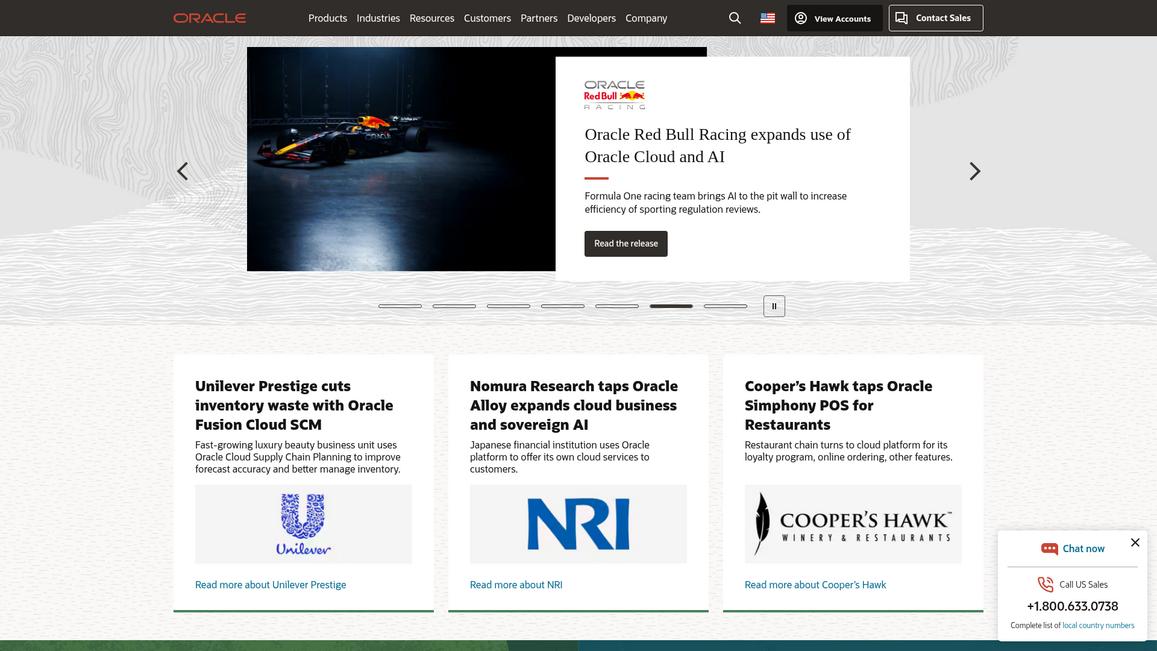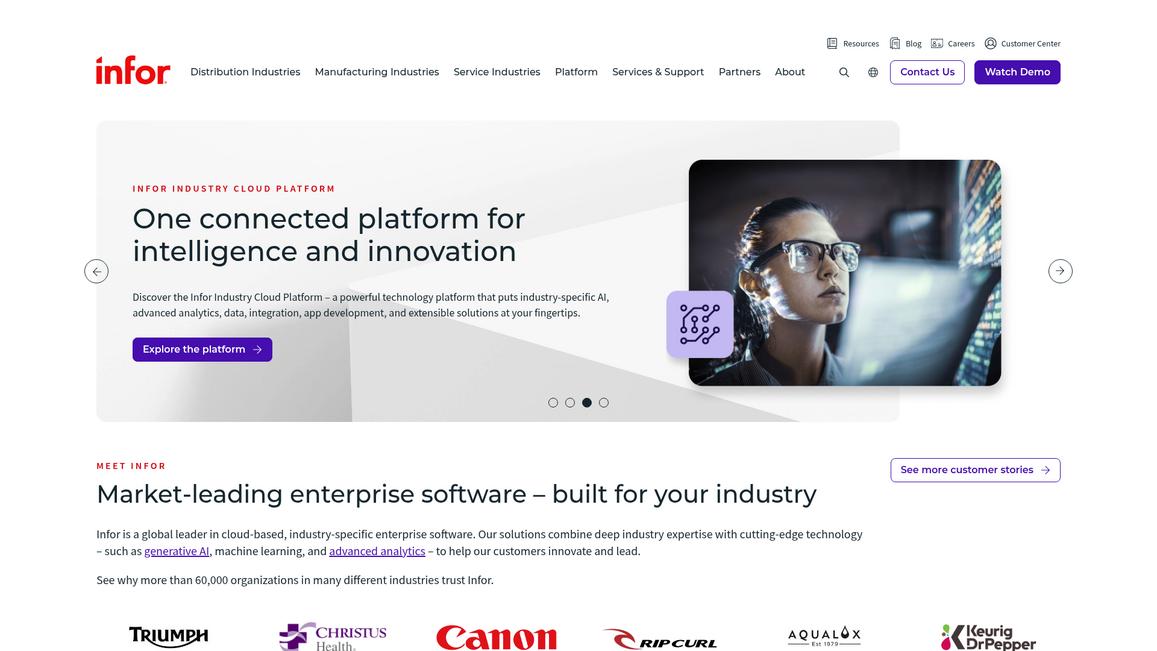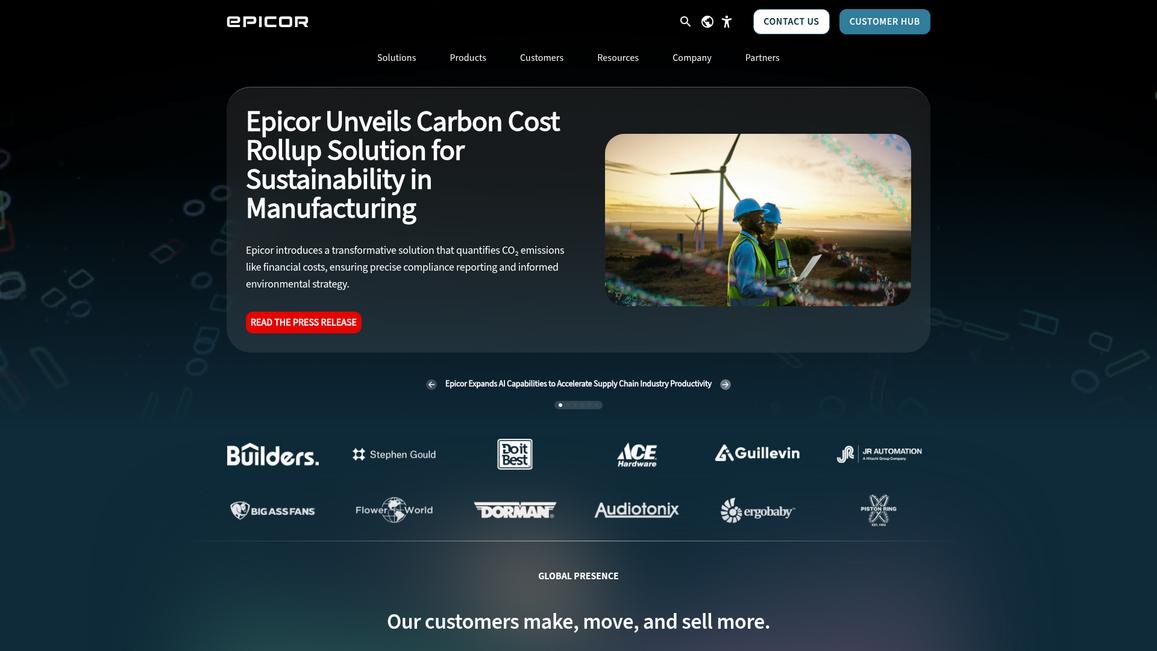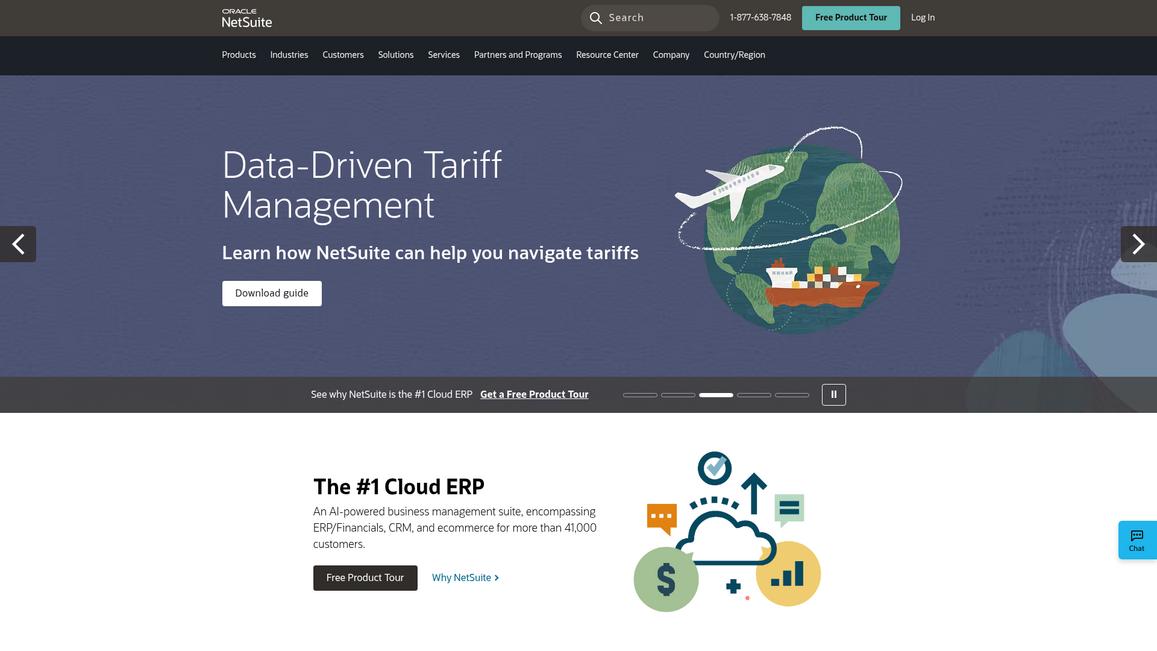Production delays keeping you up at night?
If you are a manufacturing manager, supervisor, or operations executive, you know how frustrating it can be to battle supply chain disruptions or error-prone manual processes. A lack of visibility into production workflows and inefficient resource allocation can quickly eat into your bottom line while putting extra pressure on your team.
Every hiccup—whether it is downtime, waste, or compliance problems—translates into lost time and money.
This constant firefighting can stop you from achieving the streamlined operations and cost savings you are after.
According to TechTarget, manufacturers are seeing as much as a 20 percent increase in operational efficiency after adopting the right manufacturing software. Just imagine what reclaiming that wasted time and resources could mean for your plant.
Thankfully, picking the right tool can bridge these gaps for you and set your processes on the path to higher energy efficiency.
In this article, I am going to review the best manufacturing software that will help you cut costs and boost productivity across the entire production floor.
You will discover solutions that empower better decision-making and help you scale with confidence.
Let’s get started.
Quick Summary:
| # | Software | Target Users |
|---|---|---|
| 1 | SAP ↗ | Manufacturing managers reducing costs and improving efficiency |
| 2 | Oracle ↗ | Manufacturers needing to reduce costs and boost production visibility |
| 3 | Infor ↗ | Manufacturers aiming to cut costs with industry-specific ERP |
| 4 | Epicor ↗ | Operations managers needing flexible ERP for cost savings |
| 5 | Siemens ↗ | Engineering professionals accelerating digital transformation with AI |
1. SAP
Getting manufacturing costs under control feels impossible sometimes.
SAP addresses this by providing comprehensive tools that help you reduce expenses and increase operational efficiency. You get real-time insights into your entire production process.
With SAP’s intelligent automation and advanced analytics, you can pinpoint inefficiencies and make smarter decisions faster. This means less waste and better use of your resources. You can easily manage supply chains and inventory, which is a big help if you’ve been struggling with delays or stock issues.
SAP’s platform offers deep end-to-end visibility so you’re always aware of what’s happening on the factory floor and beyond.
Their scalable solutions fit manufacturers of all sizes, from discrete to process industries.
One powerful feature is the ability to connect machines and systems to collect data for predictive maintenance. This helps you avoid costly downtime before it even happens.
SAP also delivers strong integration capabilities that connect your manufacturing operations with finance, procurement, and sales—keeping every department aligned. If you’re interested in more ways to boost your operations, you might want to explore the best AI chatbot software for customer support and sales automation.
Ultimately, it’s about driving digital transformation to keep your manufacturing processes lean and agile.
Key features:
- Real-time visibility across operations: Access instant insights into production, inventory, and supply chain to cut waste and avoid downtime.
- Predictive maintenance capabilities: Use connected devices and data analytics to predict equipment failures and reduce costly interruptions.
- Integrated end-to-end platform: Seamlessly ties manufacturing with procurement, finance, and sales for synchronized workflows and better decision-making.
Learn more about SAP features, pricing, & alternatives →
Verdict:
SAP sets the bar as the best manufacturing software for manufacturing managers and plant operators looking to cut costs and increase efficiency. The platform helped manufacturers reduce downtime by up to 30% thanks to its predictive maintenance tools, demonstrating clear ROI and enhanced operational control.
2. Oracle

Looking to streamline your manufacturing operations?
Oracle’s manufacturing software helps you cut costs by improving production visibility and automating operations. It tackles the challenge of inefficiency in manufacturing processes with real-time data insights that keep your factory running smoothly.
The platform offers modules for planning, production, and supply chain, so you get end-to-end control over your manufacturing cycle. This means fewer delays, less waste, and faster response to market demands. Oracle’s solution also supports quality management, making it easier to maintain product standards without adding effort.
You can trust their system to reduce manual errors.
The software connects your production data with financials, enabling smarter budgeting and cost tracking throughout the manufacturing lifecycle.
Oracle also includes predictive analytics that help you foresee supply shortages or machine failures before they happen, so you avoid costly downtime. This proactive approach to manufacturing operations helps you stay ahead of problems and improve output consistently.
Reliable supply chain integration is key.
Key features:
- Comprehensive production planning tools enable you to optimize schedules and resources, lowering operational costs and improving throughput.
- Quality management capabilities help you enforce compliance and reduce defects, ensuring customer satisfaction and fewer returns.
- Predictive maintenance and analytics cut downtime by forecasting equipment issues before they disrupt production, saving you time and money.
Learn more about Oracle features, pricing, & alternatives →
Verdict:
Oracle’s manufacturing software is ideal if you want the best manufacturing software to reduce costs and boost efficiency. It helped a global manufacturer enhance production visibility and reduce downtime significantly with predictive analytics and seamless supply chain integration, proving its value on the factory floor.
3. Infor

Want to improve your manufacturing efficiency?
Infor’s cloud-based ERP and industry software tackle common challenges of manufacturing like complex production, supply chain disruptions, and compliance. Their solutions help you streamline mission-critical processes while increasing agility and innovation.
Infor combines deep industry know-how with AI, machine learning, and advanced analytics to give you actionable insights that drive smarter production decisions and cost savings. Their industry-specific cloud applications support industries from aerospace to automotive, allowing tailored solutions for your manufacturing niche.
This helps you reduce costly downtime and avoid supply chain disruptions.
Their integrated Enterprise Resource Planning (ERP) systems connect supply chain management, human capital, and financials in one platform.
Infor also offers manufacturing execution systems and product lifecycle management tools, making it easier to track production progress, monitor quality, and manage product data centrally.
You get real-time visibility and control.
Key features:
- Industry-specific ERP solutions that digitize and automate your manufacturing workflows, reducing manual errors and boosting production agility.
- Advanced AI-powered analytics that provide predictive insights to optimize supply chains and anticipate market demand changes.
- Comprehensive supply chain and product lifecycle management that keep your operations compliant, cost-effective, and adaptable to industry requirements.
Learn more about Infor features, pricing, & alternatives →
Verdict:
Infor stands out as the best manufacturing software for manufacturers aiming to cut costs and boost efficiency, thanks to its industry-focused ERP, AI-driven analytics, and integrated supply chain tools. Customers like Keurig Dr Pepper have used Infor’s cloud ERP to innovate and enhance operational agility.
4. Epicor

Looking to boost manufacturing efficiency and cut costs?
Epicor offers an advanced ERP platform designed to optimize your entire manufacturing process, helping you stay flexible and agile while improving productivity.
Their Epicor Kinetic solution connects your workforce, equipment, and supply chain, so you gain clear visibility into every stage of production. It means you can reduce downtime, manage inventory better, and react faster to market changes. With AI-powered tools like Epicor Prism and Grow, you’ll unlock predictive insights that make demand forecasting and supply chain management smarter and more reliable.
This is software that actually simplifies complex manufacturing challenges.
Epicor supports your supply chain from raw materials through delivery, integrating forecasting, warehouse management, and production planning.
The cloud-based model offers resilience and scalability without sacrificing security or control. Plus, Epicor’s people-centric automation empowers your team by providing intuitive tools that improve communication and help them focus on higher-value work.
You get a single, unified system designed uniquely for manufacturers.
Key features:
- End-to-end manufacturing ERP platform: Streamlines production workflows, reduces errors, and improves resource management for consistent cost savings and efficiency gains.
- AI-driven supply chain and inventory management: Uses predictive analytics to help you anticipate demand, avoid stockouts, and optimize delivery schedules.
- Cloud deployment with people-centric automation: Delivers scalable security and empowers workers with smart tools that boost productivity and decision-making across your operations.
You can also look into energy management software to cut costs if you’re interested in more ways to drive efficiency.
Learn more about Epicor features, pricing, & alternatives →
Verdict:
Epicor stands out as the best manufacturing software for a manufacturing operations manager who needs a powerful, flexible ERP solution. Epicor Kinetic’s ability to connect people, processes, and data helped companies like Enjet Aero become more agile and proactive. Its AI tools significantly improve forecasting and supply chain efficiency, making it a smart choice to cut costs and boost productivity.
5. Siemens

Looking for software to boost manufacturing efficiency?
Siemens offers Industrial Foundation Models (IFMs) that aim to transform how engineers work. This technology addresses the challenge of slow digital adoption in manufacturing engineering.
IFMs bring generative AI capabilities directly to engineering workflows, helping you speed up complex design and decision-making processes without starting from scratch.
This means fewer errors and faster iterations in product development.
The models learn from extensive industrial data, so you get insights grounded in real-world manufacturing scenarios.
Another advantage is how Siemens integrates these foundation models into digital twin and automation solutions, letting you visualize, simulate, and optimize production before changes go live.
This reduces costly downtime and inefficiencies on the shop floor while improving product quality through smarter processes.
Siemens supports industries aiming to modernize manufacturing with AI-powered engineering tools and digital transformation strategies.
Key features:
Generative AI tailored for engineers: Empowers you to create and simulate complex designs faster, overcoming slow traditional workflows.
Rich industrial data integration: Provides actionable insights that reduce production errors and boost product quality by learning from real manufacturing environments.
Seamless fusion with digital twins and automation: Lets you simulate whole systems to optimize processes, saving valuable time and cutting operational costs.
Learn more about Siemens features, pricing, & alternatives →
Verdict:
Siemens stands out as the best manufacturing software for engineering professionals aiming to accelerate digital transformation with AI. Their Industrial Foundation Models have proven to streamline design and production, enabling manufacturers to reduce errors and production costs while enhancing product development speed.
6. NetSuite

Looking to improve your manufacturing workflows?
NetSuite offers a unified platform that helps manufacturers streamline operations by integrating inventory, production, and financial management in one system.
This means you can reduce costly delays and improve accuracy by automating your entire manufacturing process—from supply chain to shop floor to order fulfillment. Its cloud-based setup gives you real-time visibility into every stage, so you never miss a beat or waste resources on manual tracking.
Managing costs and efficiency becomes easier with NetSuite.
You get powerful tools to handle demand planning and inventory forecasting, which reduces excess stock and prevents production downtime.
Additionally, NetSuite’s manufacturing resource planning (MRP) and quality control modules support complex production environments, allowing you to maintain high standards without slowing down.
Real-time dashboards and reporting help you track performance and identify bottlenecks fast.
Key features:
- Integrated cloud ERP system that consolidates inventory, production, and finance to streamline manufacturing operations and boost cost savings.
- Demand planning and forecasting tools to reduce excess inventory and minimize production delays by aligning supply with accurate demand signals.
- Manufacturing resource planning and quality control modules that support complex workflows while maintaining high product standards and compliance.
Learn more about NetSuite features, pricing, & alternatives →
Verdict:
NetSuite stands out as one of the best manufacturing software solutions for operations managers aiming to cut costs and boost efficiency. Its all-in-one ERP approach helped a customer reduce inventory carrying costs and speed up production cycles by integrating all key processes with real-time insights. This makes it an excellent choice for manufacturers wanting a strong, cloud-based system.
Conclusion
Facing production delays?
As a manufacturing manager, you certainly understand the pressure of maintaining efficiency while navigating supply chain disruptions and manual processes. It’s frustrating when you know that operational visibility is key to preventing costly downtime and inefficiencies.
In fact, TechTarget reported that manufacturers often experience a 20 percent increase in operational efficiency after adopting effective manufacturing software. Just think about how this improvement could transform your production floor.
The best way to tackle these challenges is through SAP. It provides real-time insights that empower you to pinpoint inefficiencies, thereby optimizing resource allocation and reducing costs.
One of SAP’s clients witnessed a significant reduction in downtime, proving the platform’s tremendous value. If you want to explore how SAP can revolutionize your operations, I highly recommend you book a free demo and see it in action.
Taking this step can lead to streamlined processes and enhanced bottom line—don’t miss out!


